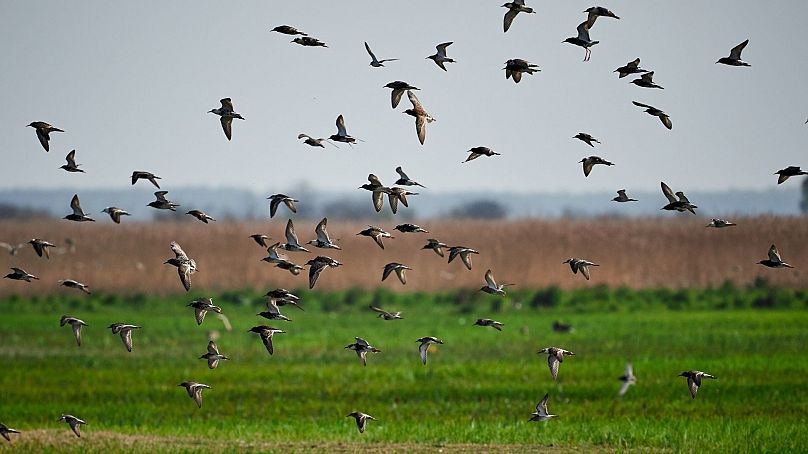Birds are speeding up spring migrations as climate change. What’s the cost?
Some birds are speeding up their spring migration to survive climate change.
 ADVERTISEMENT
ADVERTISEMENT
 ADVERTISEMENT
ADVERTISEMENT
Every winter, millions of birds fly to warmer climates, often travelling thousands of kilometres to reach their destinations.
But changing weather patterns are forcing birds to adapt - an adjustment that can be fatal.
According to a new study, certain species are delaying their departure from their winter grounds, then migrating 43 per cent faster than they usually do.
But many of them will die on this increasingly intense journey.
"Understanding how animals can compensate is an important part of understanding where the impacts of climate change will play out," said senior co-author Peter Marra, director of the Earth Commons at Georgetown University's Institute for Environment & Sustainability
How do birds speed up their migration?
Researchers studied 33 years of migration data for the American Redstart, a small songbird that migrates between Canada and the Caribbean. They used historical information along with automated radio tracking and light-level tags. These are tracking devices that use daylight to estimate location.
As climate change alters their habitats, it takes the animals longer to get into shape for the huge journey.
Jamaica has become increasingly dry as climate change lessens rainfall. There are fewer insects too, the mainstay of the bird’s diet.
The Redstarts delay their migration northward by around 10 days, the researchers found. They then compensate by flying faster, and taking fewer and shorter stopovers to refuel on the way.
The fact that birds can adapt to changes in the environment is “good news,” Dossman added.
But it remains to be seen how far this adaptive capability can be pushed.
“Increased migration speed led to a drop of more than 6 per cent in their overall survival rate,” said lead study author Bryant Dossman.
"On average, migratory songbirds only live a year or two, so keeping to a tight schedule is vital. They're only going to get one or two chances to breed.”
How else do migratory birds adapt to climate change?
Many bird species use magnetic cues to migrate, detecting the earth’s magnetic field and using it to orient themselves. Birds like homing pigeons navigate with their sense of smell.
These skills have evolved over several million years - but climate change is forcing birds to adapt in a matter of decades.
A study from 2021 found that changing habitats have pushed some birds to migrate east to west, rather than north to south.
The research, published in Current Biology in 2021, shows Richard’s pipits songbirds migrating from Siberia into Europe, rather than downward to southeast Asia.
“We suspect that habitat modification in Southeast Asia — increasing urbanization, less open areas — may also be part of the equation,” the study authors wrote.











